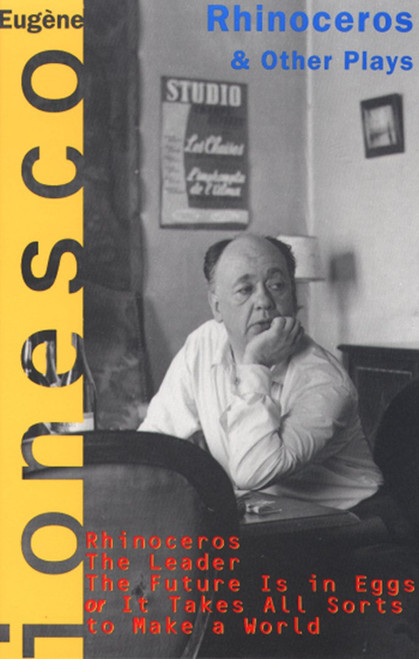In Rhinoceros, as in his earlier plays, Ionesco startles audiences with a world that invariably erupts in explosive laughter and nightmare anxiety. A rhinoceros suddenly appears in a small town, tramping through its peaceful streets. Soon there are two, then three, until the “movement” is universal: a transformation of average citizens into beasts, as they learn to move with the times. Finally, only one man remains. “I’m the last man left, and I’m staying that way until the end. I’m not capitulating!”
Rhinoceros is a commentary on the absurdity of the human condition made tolerable only by self-delusion. It shows us the struggle of the individual to maintain integrity and identity alone in a world where all others have succumbed to the “beauty” of brute force, natural energy, and mindlessness.
Translated by Derek Prouse
Editorial Review(s)
"[Ionesco was] the Molière of the twentieth century. Like Molière in his late plays, in Ionesco's plays, there is a seamless amalgam of the comic and tragic." --Rosette C. Lamont, author of Ionesco's Imperatives: The Politics of Culture
About the Author
Eugène Ionesco, the Romanian-born author, has become world famous as one of the most important playwrights of the "Theater of the Absurd." He has written numerous plays which are now part of the classic repertory of contemporary drama, including Rhinoceros, Exit the King, The Bald Soprano, The Lesson, Killing Game, Macbett, and A Hell of a Mess, as well as the autobiographical Fragments of a Journal and Present Past, Past Present. Beyond ridiculing the most banal situations, Ionesco's plays depict in a tangible way the solitude and insignificance of human existence.







